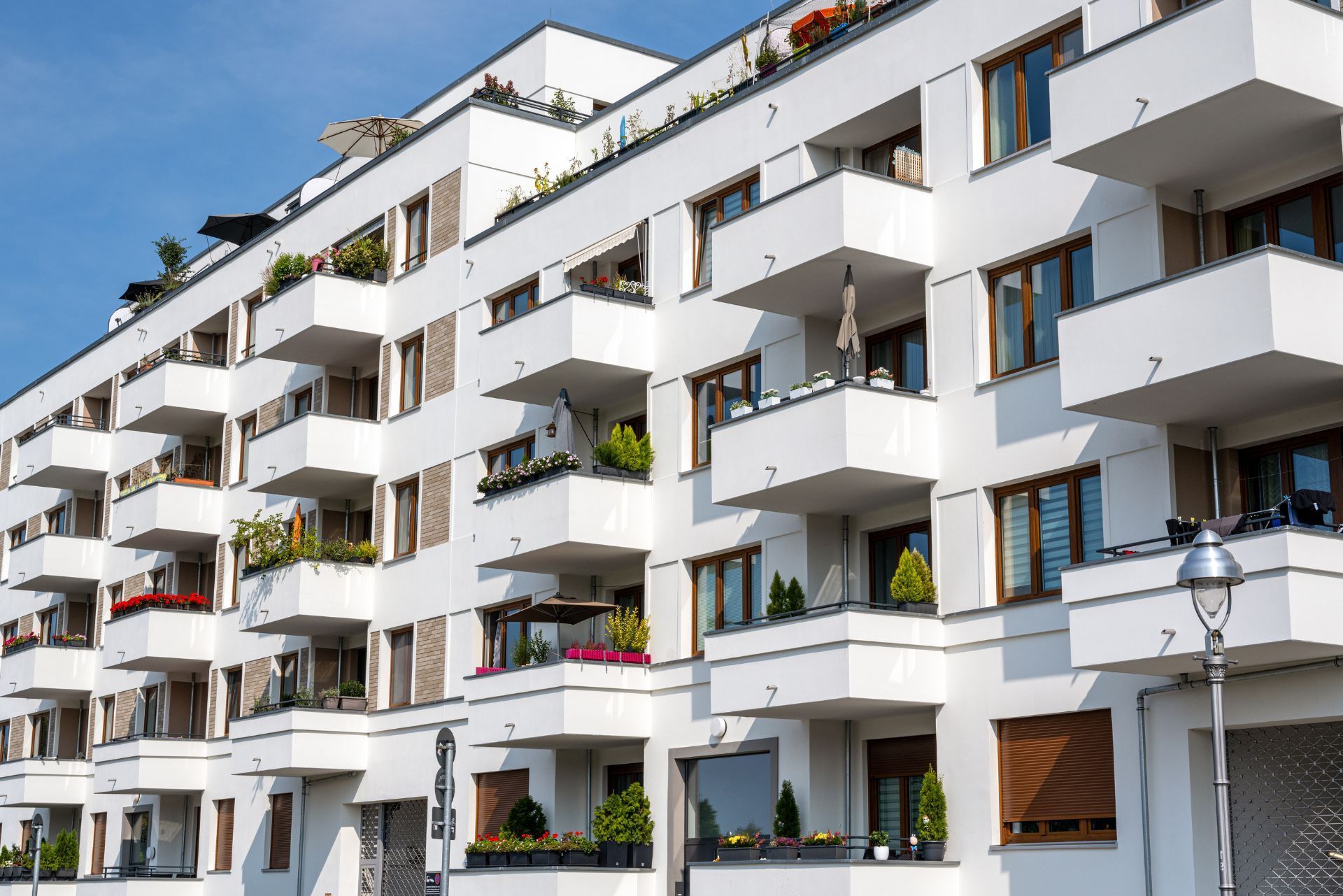
Top 3 Recommended Policies

When it comes to protecting your belongings and ensuring peace of mind while living in an apartment in Texas, understanding apartment insurance is crucial. This type of insurance is designed to cover personal property, liability, and additional living expenses in case of unforeseen events. In this comprehensive guide, we will explore everything you need to know about Texas apartment insurance, including its benefits, coverage options, costs, and how to choose the right policy for your needs.
What is Apartment Insurance?
Apartment insurance, often referred to as renters insurance, is a policy that protects tenants from financial loss due to theft, fire, or other disasters that may occur in their rented living space. Unlike homeowners insurance, which covers the structure of a home, apartment insurance focuses on the tenant's personal belongings and liability.
This type of insurance is essential for anyone renting an apartment in Texas, as it provides a safety net against potential risks. Many landlords require tenants to have renters insurance as part of their lease agreement, making it not only a wise choice but sometimes a necessity. The peace of mind that comes with knowing your belongings are protected can greatly enhance your living experience, allowing you to focus on enjoying your home rather than worrying about potential mishaps.
Key Components of Apartment Insurance
Apartment insurance typically consists of three main components: personal property coverage, liability coverage, and additional living expenses coverage. Each component serves a different purpose and collectively provides comprehensive protection for renters. Understanding these components can help you tailor your policy to fit your specific needs and lifestyle, ensuring that you are adequately covered in various situations.
Personal Property Coverage
This coverage protects your personal belongings, including furniture, electronics, clothing, and other valuables, in case of theft, fire, or damage from natural disasters. It’s important to take an inventory of your possessions to ensure you have adequate coverage for everything you own. Many insurance providers offer tools and resources to help you create a detailed inventory, which can be beneficial not only for your policy but also in the event of a claim. Additionally, some policies may allow you to add coverage for high-value items, such as jewelry or artwork, which can provide an extra layer of security for your most cherished possessions.
Liability Coverage
Liability coverage protects you in case someone is injured while visiting your apartment or if you accidentally cause damage to someone else's property. This can cover legal fees and medical expenses, providing peace of mind in case of unexpected incidents. It’s worth noting that liability coverage can also extend to incidents that occur outside of your apartment, such as if your pet causes damage to a neighbor's property. Understanding the limits of your liability coverage is crucial, as it can vary significantly between policies, and ensuring you have sufficient coverage can save you from potentially devastating financial consequences.
Additional Living Expenses Coverage
If your apartment becomes uninhabitable due to a covered event, this coverage helps pay for temporary housing and other living expenses while repairs are made. This can be invaluable in maintaining your quality of life during stressful times. For instance, if a fire damages your unit, this coverage can help you find a hotel or rental property, as well as cover costs for meals and other necessities that you may incur while displaced. It’s essential to understand the limits and duration of this coverage, as policies can differ in how long they will provide support and the maximum amount they will pay, allowing you to plan accordingly in case of an emergency.

Why Do You Need Apartment Insurance in Texas?
Texas is known for its diverse climate, which can lead to various natural disasters, including hurricanes, tornadoes, and floods. These events can cause significant damage to personal property, making apartment insurance a vital investment for renters in the state. The unpredictability of Texas weather means that renters should be prepared for the worst, as even minor storms can escalate quickly into dangerous situations. For instance, the aftermath of a hurricane can leave many without shelter or access to basic necessities, highlighting the need for a safety net that apartment insurance provides.
Moreover, with the increasing rates of theft and burglary in urban areas, having insurance can provide a financial buffer against loss. It not only protects your belongings but also offers liability coverage, which can be crucial in protecting your assets from potential lawsuits. In a state where the population is rapidly growing, the demand for housing is high, leading to crowded living conditions that can increase the likelihood of accidents and disputes among neighbors. Apartment insurance helps ensure that you are not left vulnerable in such situations, offering peace of mind in an ever-changing environment.
Common Risks for Renters in Texas
Understanding the specific risks that renters face in Texas can help highlight the importance of apartment insurance. Some common risks include:
- Natural Disasters: Texas experiences a range of natural disasters, from hurricanes along the Gulf Coast to tornadoes in the north. These events can lead to significant property damage, and the recovery process can be lengthy and expensive. For example, after Hurricane Harvey, many renters faced overwhelming costs for repairs and replacements, emphasizing the critical role that insurance plays in recovery.
- Theft: Urban areas in Texas often see higher rates of property crime, making renters vulnerable to theft and burglary. In cities like Houston and Dallas, statistics show a consistent rise in property crimes, prompting many renters to reconsider their security measures. Apartment insurance not only covers stolen items but can also assist with the cost of replacing locks or installing security systems, providing an added layer of protection.
- Fire Hazards: Fires can occur due to various reasons, including faulty wiring or cooking accidents. Having insurance can mitigate the financial impact of such incidents. Additionally, many apartment complexes may have shared utilities and common areas, which can increase the risk of fire spreading quickly. In such cases, having comprehensive coverage can help ensure that you are not left to bear the financial burden alone, allowing you to focus on recovery rather than stress over expenses.
How Much Does Apartment Insurance Cost in Texas?
The cost of apartment insurance in Texas can vary widely based on several factors, including the location of the apartment, the amount of coverage needed, and the insurance provider. On average, renters can expect to pay between $15 to $30 per month for a basic policy.
Factors that can influence the cost include:
Location
Renters in urban areas or regions with higher crime rates may face higher premiums compared to those in rural areas. The risk associated with the location plays a significant role in determining the insurance cost. For example, cities like Houston and Dallas, which have larger populations and higher instances of theft, may see premiums on the higher end of the spectrum. Conversely, smaller towns or suburban areas often enjoy lower rates due to reduced risk factors.
Coverage Amount
The more coverage you need, the higher your premium will be. It’s essential to assess the value of your personal belongings and choose a coverage amount that adequately protects your assets. Many renters underestimate the value of their possessions, which can include electronics, furniture, and clothing. Conducting a thorough inventory of your items can help you determine the right coverage level. Additionally, some policies offer replacement cost coverage, which can be beneficial in ensuring you receive enough compensation to replace your items at current market value.
Deductible Choices
Most insurance policies come with a deductible, which is the amount you pay out of pocket before the insurance kicks in. Choosing a higher deductible can lower your monthly premium, but it’s important to ensure that you can afford the deductible in case of a claim. It’s also worth noting that some insurers offer flexible deductible options, allowing you to adjust your deductible based on your financial situation. Understanding how deductibles work can help you make an informed decision that balances your monthly budget with your potential out-of-pocket expenses during a claim.
Additional Coverage Options
Beyond the basic coverage, many renters opt for additional endorsements or riders to enhance their policies. For instance, if you own valuable items such as jewelry, art, or collectibles, you might consider adding a scheduled personal property endorsement to ensure these items are fully covered. Furthermore, liability coverage is another critical aspect that renters should consider, as it protects you in case someone is injured in your apartment or if you accidentally damage someone else's property. This added layer of protection can be invaluable, especially in shared living situations.
Discounts and Savings
Many insurance providers offer discounts that can help lower your premium costs. For example, bundling your apartment insurance with
auto insurance can lead to significant savings. Additionally, some companies provide discounts for having safety features in your apartment, such as smoke detectors, security systems, or deadbolt locks. It's advisable to inquire about all available discounts when shopping for insurance, as these can vary widely between providers and can significantly impact your overall costs.
How to Choose the Right Apartment Insurance Policy
Choosing the right apartment insurance policy can seem overwhelming, but breaking it down into manageable steps can simplify the process. Here are some tips to consider:
Assess Your Needs
Start by evaluating your personal belongings and determining how much coverage you need. Consider the total value of your possessions, including electronics, furniture, and clothing. This will help you choose a policy that adequately covers your assets.
Compare Quotes
Shopping around and comparing quotes from different insurance providers is crucial. Each company may offer different rates and coverage options, so take the time to find the best deal. Online comparison tools can make this process easier.
Read Reviews and Ratings
Researching customer reviews and ratings can provide insight into the reliability and customer service of various insurance companies. Look for feedback on claims processing and overall satisfaction to ensure you choose a reputable provider.
Common Exclusions in Apartment Insurance Policies
While apartment insurance provides valuable coverage, it’s essential to be aware of common exclusions that may not be covered by your policy. Understanding these exclusions can help you avoid surprises when filing a claim.
Natural Disasters
Some policies may exclude certain natural disasters, such as floods or earthquakes. Renters in high-risk areas may need to purchase separate policies or endorsements to cover these specific risks.
High-Value Items
Items such as jewelry, art, and collectibles may have limited coverage under standard policies. It’s advisable to consider additional coverage or riders for high-value items to ensure they are adequately protected.
Negligence
If damage occurs due to negligence, such as failing to maintain your apartment or leaving a window open during a storm, your insurance may not cover the resulting losses. It’s crucial to take care of your living space to avoid such situations.

How to File a Claim
In the unfortunate event that you need to file a claim, understanding the process can help ensure a smooth experience. Here are the steps to follow:
Document the Damage
Before contacting your insurance provider, document the damage thoroughly. Take photos and make a list of all affected items, including their estimated value. This documentation will be crucial when filing your claim.
Contact Your Insurance Provider
Reach out to your insurance provider as soon as possible to report the claim. Provide them with all necessary information, including your policy number and details of the incident. They will guide you through the claims process and inform you of any required documentation.
Follow Up
After filing the claim, stay in touch with your insurance company to monitor the progress. Be prepared to provide additional information if requested, and keep records of all communications for your reference.
Tips for Lowering Your Apartment Insurance Premium
While apartment insurance is a necessary expense, there are several strategies you can employ to lower your premium without sacrificing coverage:
Bundle Policies
Many insurance companies offer discounts for bundling multiple policies, such as auto and renters insurance. If you already have car insurance, consider getting your apartment insurance from the same provider to take advantage of potential savings.
Improve Security
Installing security devices, such as deadbolts, smoke detectors, and security cameras, can lower your risk of theft and damage. Many insurance companies offer discounts for renters who take proactive measures to enhance security.
Maintain a Good Credit Score
Your credit score can impact your insurance premium. Maintaining a good credit score demonstrates financial responsibility, which may lead to lower rates. Regularly check your credit report and address any discrepancies promptly.
Frequently Asked Questions
As renters consider apartment insurance, several common questions often arise. Here are some frequently asked questions and their answers:
Is apartment insurance mandatory in Texas?
While apartment insurance is not legally required in Texas, many landlords include it as a requirement in their lease agreements. It is advisable to check your lease to see if insurance is necessary.
What happens if I don’t have apartment insurance?
If you do not have apartment insurance and experience a loss due to theft, fire, or other disasters, you will be responsible for covering the costs of replacing your belongings out of pocket. This can lead to significant financial strain.
Can I get coverage for roommates?
Most apartment insurance policies cover only the policyholder's belongings. However, if you and your roommate both want coverage, each should consider purchasing a separate policy. Some providers may offer a shared policy option as well.
Conclusion
Texas apartment insurance is a vital component of financial security for renters. By understanding the different coverage options, costs, and how to choose the right policy, renters can protect their belongings and safeguard themselves against potential liabilities. With the right insurance in place, renters can enjoy their living space with peace of mind, knowing they are prepared for the unexpected.
Whether you're a new renter or have been living in an apartment for years, taking the time to review your insurance needs and options can make a significant difference in your overall security and comfort. Don't wait until it's too late—invest in apartment insurance today and protect what matters most.
Contact Us

